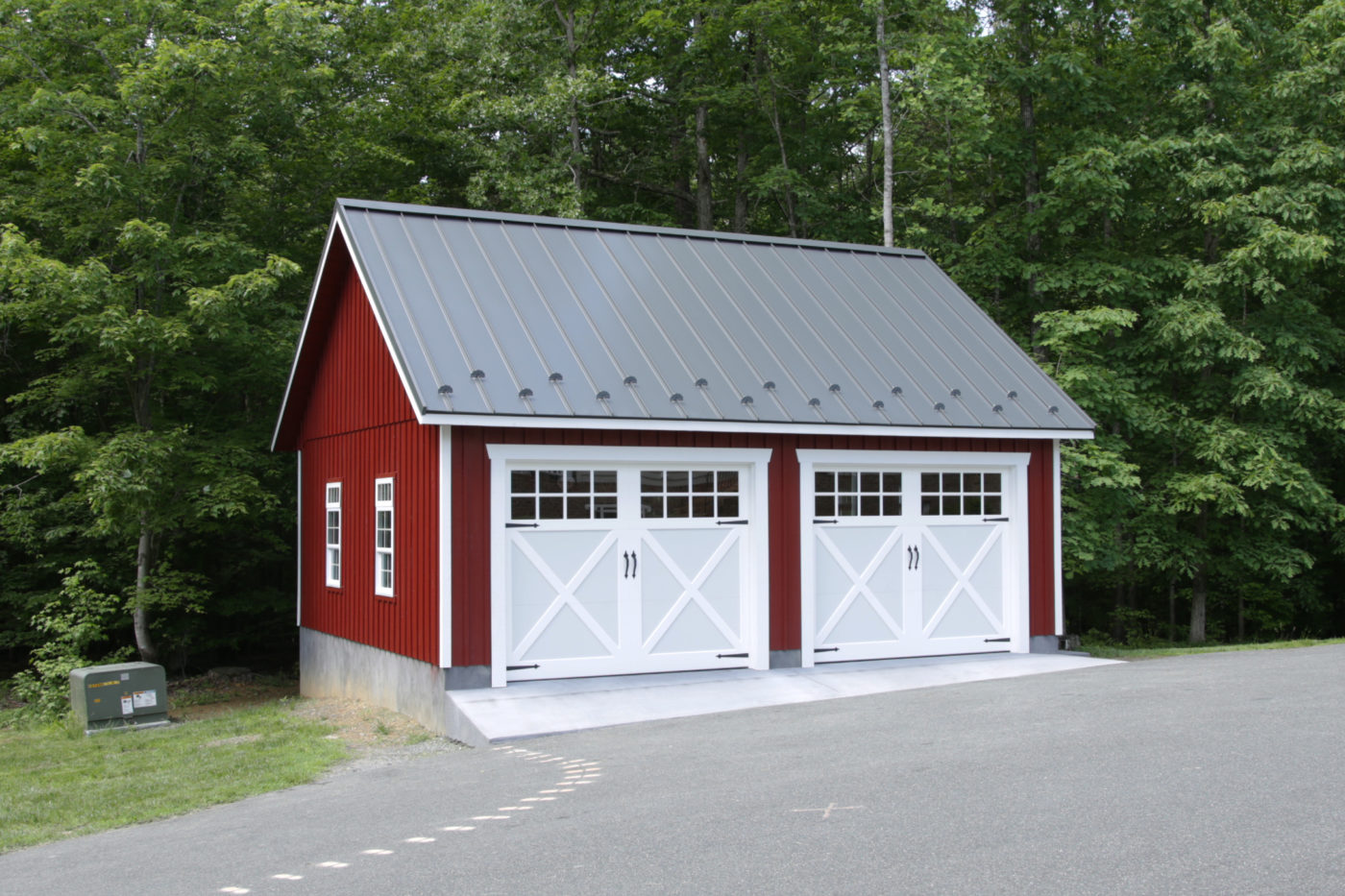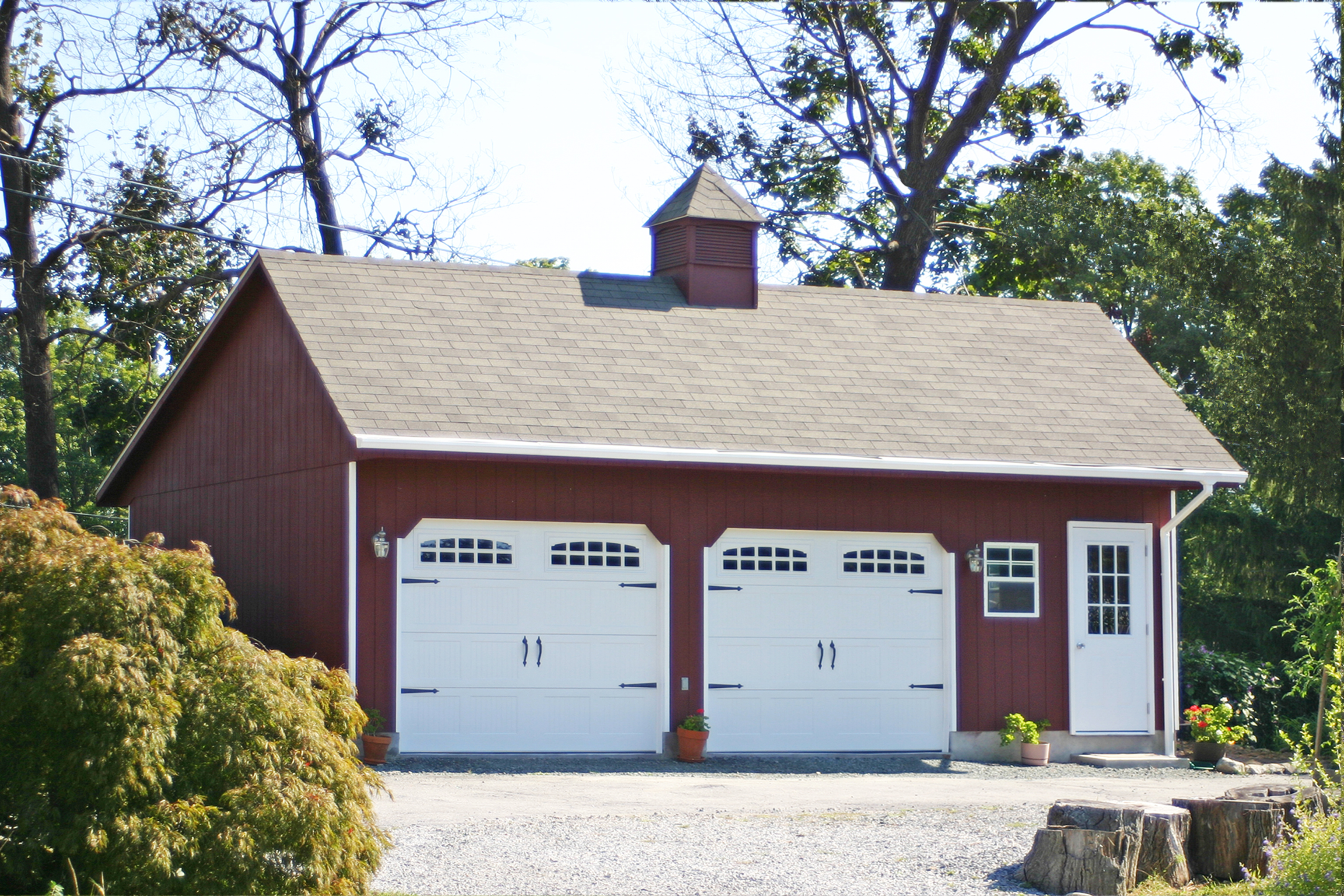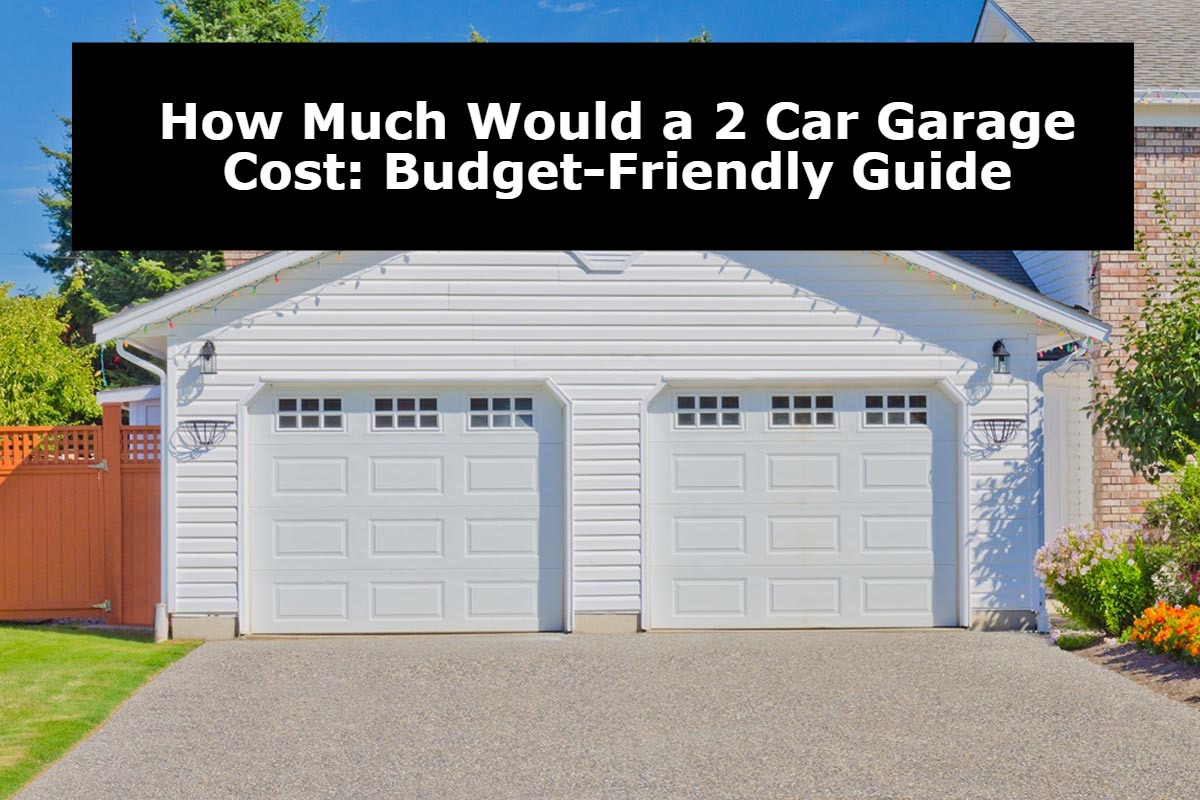How Much Would a 2 Car Garage Cost: Budget-Friendly Guide
Building a 2-car garage adds value and functionality to your home. It offers secure parking and extra storage space. The cost can vary widely based on several factors. Materials, labor, and location significantly influence the final price. Basic structures with minimal features cost less.
High-end finishes and custom designs increase expenses. It’s crucial to get multiple quotes and consider your needs carefully. A well-planned garage project can enhance your property’s utility and curb appeal. Research thoroughly to ensure a cost-effective and practical investment.

Factors Affecting Garage Costs
Location greatly impacts the cost of building a garage. Urban areas usually have higher costs, while rural areas might be cheaper. Labor costs vary by region, and permits and regulations also differ by location.
Materials play a big role in garage costs. Wood can be less expensive than brick. Steel is durable but may cost more. The type of roof also affects the price. High-quality materials increase the overall cost.
Garage size determines the total cost. A larger garage requires more materials, while smaller garages are cheaper to build. Double garages cost more than single ones, and size impacts labor costs and the time needed to build them.

Choosing The Right Materials
Wood offers a classic look but needs more maintenance. Metal is durable and often cheaper. Wood may be better for style, but metal can last longer with less upkeep. Choose based on budget and needs.
Bare concrete is the cheapest option. Stamped concrete adds style but costs more. Reinforced concrete is stronger and lasts longer. Consider the climate and usage. Each type has its advantages and disadvantages.
Fiberglass is cheap and easy to install. Spray foam offers better insulation but costs more. Reflective insulation works well in hot climates. Each type has different benefits. Choose based on your climate and budget.
Labor Costs
Building a two-car garage yourself can save money, but professional help ensures quality work. DIY projects often take longer, and mistakes can be costly. Professionals have the right tools, experience, and knowledge, which reduces errors and delays.
Labor rates vary by location. In some areas, expect to pay $50 to $100 per hour. Hiring a contractor might cost more. General contractors often charge higher rates. Specialized tasks like electrical work can also increase costs. Comparing rates can help find the best deal.
Building a garage takes time. DIY projects can take several weeks to months. Professional contractors usually finish faster. They might complete the job in a few weeks. Planning ahead can save time and money. Consider the season and weather as well. Bad weather can cause delays.

Permits And Regulations
Local building codes are rules set by your city. These rules make sure buildings are safe. You must follow these codes to build your garage. Check with your local city office to know the codes.
Permits are papers that let you build. You need permits to start your garage project. The cost of permits can vary. Some cities charge a lot, while others charge less. It’s important to know these costs before you start.
Inspections are checks to ensure safety. Inspectors look at your work to see if it follows the rules. You may need several inspections during your project. Each inspection ensures your garage is being built correctly.
Foundation And Flooring
A slab foundation is a common choice for garages. It is cost-effective and durable. This type of foundation involves pouring concrete directly onto the ground, creating a flat and stable base for the garage. Costs vary depending on the location and materials used. On average, expect to spend between $3,000 and $7,000 for a two-car garage slab foundation.
Poured concrete is the most popular option for garage flooring. It provides a smooth and strong surface, is easy to maintain and clean, and can handle the weight of vehicles and heavy equipment. Poured concrete ranges from $4 to $8 per square foot. A two-car garage can total between $2,400 and $4,800.
There are several finishing options for garage floors. Popular choices include epoxy coatings, stained concrete, and sealing. Epoxy coatings add a glossy and durable layer. Stained concrete offers a decorative touch. Sealing the concrete helps protect it from moisture and stains. Costs for finishing options vary. Epoxy coatings range from $3 to $7 per square foot. Stained concrete can cost $2 to $4 per square foot. Sealing is typically $1 to $3 per square foot.
Roofing Options
A flat roof is often cheaper and uses fewer materials. A pitched roof looks more traditional and sheds water better. However, flat roofs need more maintenance.
Asphalt shingles are the most common. They are affordable and durable. Metal shingles last longer but cost more. Wood shingles look nice but need more care.
Labor costs vary by location. Experienced roofers charge more. Flat roofs usually cost less to install, while pitched roofs require more time and effort.
Additional Features
A 2-car garage can include additional features like storage solutions, insulation, and custom flooring. These enhancements impact the overall cost.
Electrical Wiring
Electrical wiring can be essential for a garage. Proper lighting and outlets for power tools are important. Hiring an electrician ensures safety. Costs can vary based on wiring complexity. Plan for future needs, too.
Plumbing Needs
Plumbing in a garage can be useful. Think about adding a sink. It helps with cleaning tools and hands. Adding a bathroom can increase comfort. Plumbing costs depend on pipe length and fixtures. Always hire a professional plumber for this task. Ensure it meets local codes.
Storage Solutions
Storage solutions keep your garage organized. Shelves and cabinets store tools and supplies, while overhead storage saves space. Consider wall-mounted racks for bikes. Custom storage can be more expensive, but ready-made options are usually cheaper. Plan according to your storage needs.
Budgeting Tips
Use recycled materials, find sales and discounts at local stores, compare prices before buying, hire local contractors, and avoid unnecessary features.
Check for low-interest loans, ask about payment plans, use home equity if possible, look into government grants, and consider credit unions for better rates.
Start with a simple design. Watch online tutorials. Borrow or rent tools. Ask friends for help. Practice safety at all times.
Frequently Asked Questions
How Much Does A 2 Car Garage Cost?
The cost of a 2 car garage typically ranges from $19,600 to $28,200, depending on materials and location.
What Factors Affect Garage Cost?
Size, materials, labor, permits, and additional features like insulation or electrical work can all influence the overall cost.
Is It Cheaper To Build Or Buy A Garage?
Building a garage is generally more expensive due to construction costs, but offers customization. Prefab garages are cheaper.
How Long Does Garage Construction Take?
Building a 2 car garage usually takes 2-4 weeks, depending on weather, contractor availability, and complexity.
Do I Need A Permit For A Garage?
Yes, most areas require a building permit for garage construction. Check local regulations before starting.
What Materials Are Best For A Garage?
Common materials include wood, metal, and concrete. Each has its pros and cons, affecting durability and cost.
Can I Add A Garage To My Existing Home?
Yes, you can attach a new garage to your home, but it may require additional structural work and permits.
Conclusion
Determining the cost of a 2-car garage depends on various factors. Material, labor, and design choices all influence the price. By understanding these elements, you can budget effectively. Always consult professionals for accurate estimates and quality work. Investing in a garage adds value and convenience to your home.







